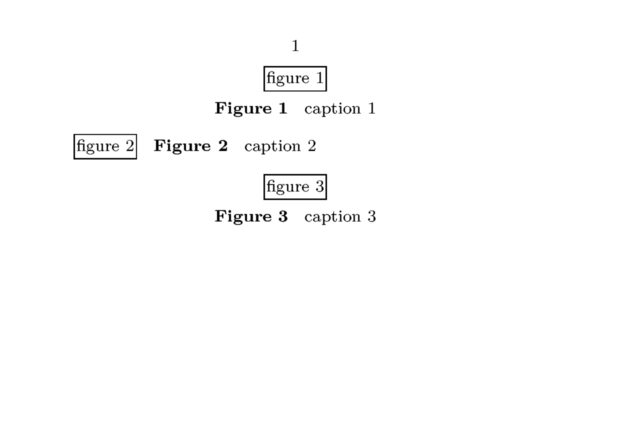Command/definefloat
< Command
Jump to navigation
Jump to search
Contents
\definefloat
Summary
The command \definefloat defines floating object classes.
 |
Bug report: there are backslashes in front of the instance names below, which is misleading. Until I find a solution for the incorrect visual, just pretend the backslashes are not there. --Taco (talk) 20:35, 7 September 2020 (CEST) (See: Bug List) |
Instances
| \chemical | |
| \figure | |
| \table | |
| \intermezzo | |
| \graphic |
Settings
| \definefloat[...][...][...=...,...] | |
| [...] | singular |
| [...] | singular plural |
| ...=...,... | inherits from \setupfloat |
Settings name
Description
Define a new float type additional to predefined types "chemical", "graphic", "figure", "table" and "intermezzo". When invoked as \definefloat[remark][remarks][intermezzo], the following commands are defined, with defaults taken from the intermezzo environment, and the "intermezzo" counter will be used for "remark" floats:
\setupremarkto set up the new environment\placeremarkto place a remark block\startplaceremark...\stopplaceremarkis the same, as an environment\placelistofremarksfor a 'table of remarks'.\completelistofremarksfor a table of remarks with a header\startremarktext...\stopremarktext
It also defines:
- the counter 'remark' (inherits from intermezzo)
- the label 'remark' (inherits from intermezzo)
If no parent is given, then the label is the \Word value of the name (so: Remark) in this case.
 |
TODO: there are some more commands and internals automatically generated (See: To-Do List) |
Examples
Example 1
\setuppapersize[A7,landscape] \definefloat[rightfigure][rightfigures][figure] \setupcaption[rightfigure][location=right] \starttext \placefigure{caption 1}{\framed{figure 1}} % old one \placerightfigure{caption 2}{\framed{figure 2}} % new one \placefigure{caption 3}{\framed{figure 3}} \stoptext

Notes
See also
Help from ConTeXt-Mailinglist/Forum
All issues with:
- \chemical on the mailing list (all results)
- \chemical on the mailing list (subject only)
- \chemical on stack exchange
- \chemical in ConTeXt's source
- \figure on the mailing list (all results)
- \figure on the mailing list (subject only)
- \figure on stack exchange
- \figure in ConTeXt's source
- \table on the mailing list (all results)
- \table on the mailing list (subject only)
- \table on stack exchange
- \table in ConTeXt's source